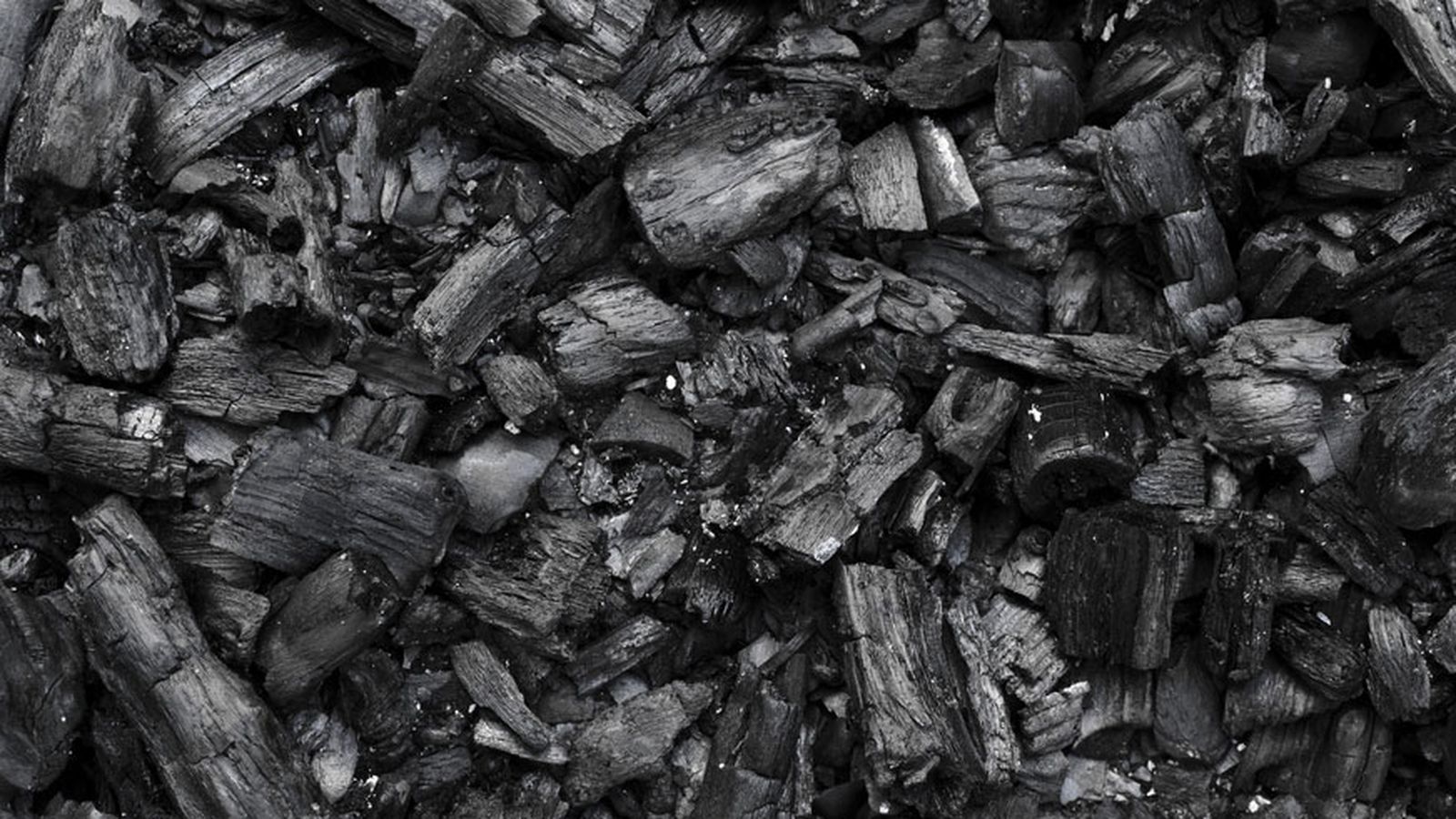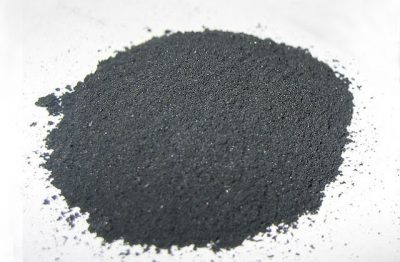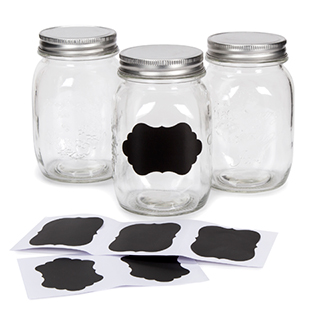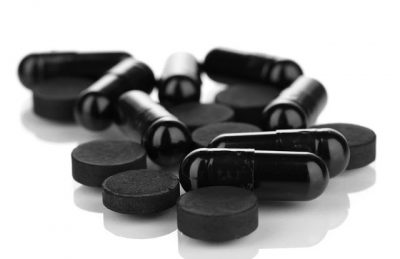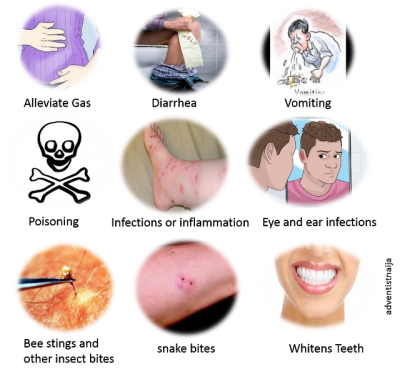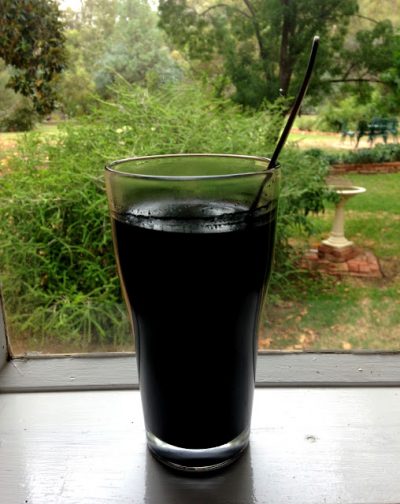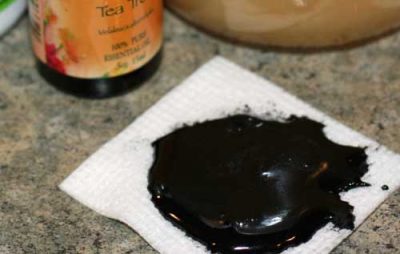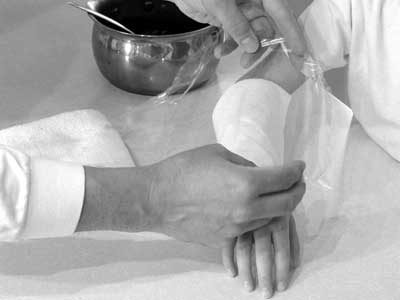
by Onovae Akpoesiri | Mar 9, 2018 | Food for thought
Hurray! Sabbath is here. Are you excited? Are you ready for it? Do you know that going to church late is both contempt and insult on GOD? Do you also know that going to church late is a habit which you can determine to stop?
Why not begin to plan for tomorrow service now?
Here are some tips on how to overcome going late to church
- Iron all your outfits before you sleep.
- Polish/ clean footwear before you sleep.
- Get your Bible/Jotter/ tablet/ bags etc ready at one place.
- Get your Tithe/ offering also ready
- Sleep early
- Wake up on time
- “Even when I get there early, I won’t meet anyone”
Avoid the above saying. Get there early and let someone come and meet you. Don’t forget you are also someone. - Washing on Sabbath before church is not encouraged. It may delay you.
- If it takes you 15 minutes to drive/walk to the church, always make allowance for extra time in case of anything. For instance, if service is 8am and it takes you 10 minutes to drive/walk to church, it’s always better to leave home 7:40.
- Plan to get to church at least 10 minutes before service starts.
- Don’t give room for friends and relatives to visit you few hours to fellowship. If they come when you are preparing to church, take them along or make them wait until you are back. They are not more important than God.
NB: going to church early ignites the blessing of the Lord upon your life. Don’t be a habitual late comer to church, it’s a dishonour to your God.
Lateness to service is unfaithfulness.
See you in church … Maranatha

by Onovae Akpoesiri | Mar 8, 2018 | Food for thought
Sometimes we ignore the little things that can save our lives simply because they are cheap and easy to get. Today we will be looking at the wonders of charcoal.
My Favourite book says “God has chosen the foolish things of the world to put to shame the wise, and God has chosen the weak things of the world to put to shame the things which are mighty.” 1 Cor. 1:27 (NKJV)
What is charcoal?
According to Collins English Dictionary, charcoal is a black amorphous form of carbon made by heating wood or other organic matter in the absence of air: used as a fuel, in smelting metal ores, in explosives, and as an absorbent. Many people use charcoal to make fires, for cooking, and for heating up water.
How to get Activated Charcoal

Charcoal is very easy to get. First heat the wood, then break the charred wood into smaller sizes and then grind it into fine powder.[AdSense-A]
Can any wood be used?
For effectiveness, we recommend you get your activated charcoal from coconut shell or any other specific wood with ultra-fine grains.
How can I store my Activated Charcoal?
You don’t need any special device or container to store your charcoal powder, store it in a dry, tightly covered container; this will keep it fresh for a very long time.

Can I get Charcoal from a chemist or pharmacy?
If you cannot go through the stress of burning and grinding charcoal, you can get charcoal in small round tablets from a pharmacy or chemist, but look for the ones from coconut shell or any specific wood with ultra-fine grains and avoid the ones with sweetener.

Does it have taste?
Charcoal has no smell or taste. It is completely safe.
Can burnt food be used as charcoal?
The answer is NO, burned food is not charcoal. Burned food is very bad for the body and should be avoided.
Benefits of charcoal
- It is very easy to get or make
- Very cheap
- It is very simple to use (both inside and outside of the body)
- Very safe to use
- Works well for many diseases
Uses of charcoal
Charcoal can be used to help treat the inside of our body: Gas, Diarrhea, Vomiting, and even Poisoning
Outside the body: Infections or inflammation of the skin and joints, Eye and ear infections, Wounds from poisonous plants, Bee stings and other insect bites, Spider and snake bites

Dosage for simple ailments
- Gas
- Bloating
- Diarrhoea
- Vomiting
Adult: Mix 1 to 2 large spoonful of charcoal powder with a small amount of water.
Then fill the glass with more water and stir well.
Drink the mixture and then drink some clean water afterwards.
Repeat the charcoal dose after each loose or watery stool, and after each vomiting experience.
Children: one half of the amount that we would give a grown person.
If they have a lot of stooling and vomiting, you must give them other liquids like rice water or water with a little bit of sugar and take them to the health worker quickly.

Note: Charcoal can be taken any time it is needed but it is best taken between meals, like 2 hours after eating or drinking medicine.
Treating Poison
If someone has taken poison or taken too much medicine, the best thing to do is to quickly give that person some charcoal (within 30 minutes) and then take the person to the clinic.
Dosage for poisoning
Immediately drink 4 to 10 large spoonful of charcoal powder mixed with a small amount of water. (Take the larger amount if the person has eaten in the past 2 hours)
Then refill the same glass with water and drink it down.
Repeat the charcoal dosage in 10 minutes, and any time later if the person starts feeling worse.
Note: Do not give charcoal by mouth if the person is sleepy, unconscious, or may be unable to swallow. In such cases, take the person to the clinic or hospital immediately.
Important: Always keep charcoal powder ready to use at home
Using charcoal on the skin
Charcoal can be used as a bath or applied as a plaster.
Charcoal bath
Benefits
- To treat large areas of the body
- It is simple to prepare
- Useful for skin disease
Dosage
Add 2 cups of charcoal powder to a tub of water.
You can put the whole body in the charcoal water.[AdSense-A]
Charcoal plaster

Benefits
- For treating specific part of the body
- For treating poisonous bites
Dosage/Direction
- Mix charcoal powder and a little water and make a wet charcoal paste.
- Spread the paste on one half of a thin, folded clean piece of cloth. Then cover the paste with the other half of
- the cloth.
- Place the charcoal plaster on the affected body part— making sure it completely covers the area.
- Wrap the charcoal plaster with plastic—to keep it from drying out.

- Bandage or tape the plaster securely in place.
Note: Before applying a plaster we should wash the skin very well with soap and water.
- Then apply the charcoal plaster and leave it on for several hours or overnight.
- In the morning, remove and throw away the plaster.
- Prepare a new plaster and put it on the skin. You can continue this for several days or until all of the swelling is gone.
How to Treat Poisonous Bites
If someone has been bitten by a poisonous snake or spider, stung by a scorpion or many bees, they must be treated immediately.
Important: Always keep charcoal powder ready to use at home
Dosage/Direction
- Wash the area thoroughly with soap and water immediately.
- Apply a large charcoal plaster directly over the bitten area (or the entire area).
- Cover the plaster with plastic—to keep it moist.
- Change the charcoal plaster every 10 to 15 minutes—until the pain and swelling are gone.
Also, take charcoal by mouth
2 large spoonful of charcoal in 1/2 glass of water every 2 hours.
Do this 3 times.
Then take 1 small spoonful every 4 hours for the next day (24 hours).
Every time you take charcoal, you must drink 2 glasses of water.
Snake Bites
Note: Some snakes are very dangerous and can kill people. You must act fast when you treat snakebite. If the snakebite is poisonous, pain and swelling will come within 10 minutes. Charcoal works best when it is applied to the snakebite before much swelling comes.
Dosage/Direction
- With snakebites, remember to: Make the person stay very quiet and still.
- Send someone to get medical help quickly.
- Apply a large charcoal plaster as soon as possible, while you are waiting for medical help or while you are on your way to the clinic or hospital.
- Give 2 tablespoons of charcoal mixed with water, for the person to drink if he or she is not sleepy or unconscious.
- If available, put some ice on the wound, both above and below the charcoal plaster. If it becomes too painful remove the ice.
Do you know that a wise use of charcoal has saved many people with poisonous snakebites? Isn’t it wonderful that such a simple medicine from nature can help treat so many diseases, and save so many lives?
Note: they are other uses of charcoal-whiten of teeth, mold cleansing, water filtration etc.
When used properly, the simple remedies of nature are often more effective than many modern medicines. Get your charcoal now without delay
Like I said before “God has chosen the foolish things of the world to put to shame the wise, and God has chosen the weak things of the world to put to shame the things which are mighty.” 1 Cor. 1:27 (NKJV)
May God bless you with good health as you seek to make a wise use of the simple remedies He has provided.
Don’t forget to use the comment box for questions and testimonies.

by Onovae Akpoesiri | Mar 8, 2018 | Food for thought
“Alcohol is a very effective dissolving agent. It dissolves families, marriages, friendships, jobs, bank accounts, and neurons, but never problem.” Yet, the practice of social drinking has become such a widespread habit in society that the total abstainer almost finds himself in the position of a heretic!
With the lack of explicit scriptural restriction from alcohol, theologians have controversial positions toward this practice. The Seventh – day Adventist understanding of the Word of God emphasizes on pure abstinence from all toxic substances including alcohol for our “body are the temple of the Holy Spirit”(1Cor 3:16-17).
Promoting health ministry principles that will prevent alcoholism is of a great importance to the church. In the present paper, attention will be paid to necessary measures to discourage alcohol intake, and to recover alcoholic addicted ones. To arrive at this goal, lines will be allotted to highlighting alcohol in Scriptures, and its effects on individuals and society.
DEFINITION
Alcoholism, also known as alcohol use disorder (AUD), is a broad term for any drinking of alcohol that results in problems. It was previously divided into two types: alcohol abuse and alcohol dependence (Jill, 2014). In a medical context, alcoholism is said to exist when two or more of the following conditions is present: a person drinks large amounts over a long time period, has difficulty cutting down, acquiring and drinking alcohol takes up a great deal of time, alcohol is strongly desired, usage results in not fulfilling responsibilities, usage results in social problems, usage results in health problems, usage results in risky situations, withdrawal occurs when stopping, and alcohol tolerance has occurred with use. Risky situations include drinking and driving or having unsafe sex among others. Alcohol use can affect all parts of the body but particularly affects the brain, heart, liver, pancreas, and immune system. This can result in mental illness, Wernicke–Korsakoff syndrome, an irregular heart-beat, liver failure, and an increase in the risk of cancer, among other diseases.[AdSense-A]
Alcohol use disorder (which includes a level that’s sometimes called alcoholism) is a pattern of alcohol use that involves problems controlling your drinking, being preoccupied with alcohol, continuing to use alcohol even when it causes problems, having to drink more to get the same effect, or having withdrawal symptoms when you rapidly decrease or stop drinking.
The word alcohol is probably derived from the Arabic “al kohl” meaning a fine powder, probably antimony sulfide, used then in making cosmetics. In time it came to mean the essence of something. Still, much later, in the 16th century AD, an early chemist, Paracelsus, defined it as the most subtle part of anything” and in this sense spoke of it as “alcool-vini”. Gradually the “vini” was dropped but it was not until the 19th century that the term “alcohol” came to be used generally for wine-spirits”.
Now, in chemistry, the word alcohol denotes a branch of the hydro-carbon family. It is a group of liquids containing the elements carbon, hydrogen and oxygen. There are 59 varieties of alcohol, the most important for our consideration being ethyl alcohol, fruit or grain spirit. Alcoholic beverages contain ethyl alcohol only, of which the chemical formula is C2H5OH.
Pure alcohol is a colorless fluid: it boils at 173 F and freezes solid at 200 F below zero. Absolute alcohol, 99% ethyl alcohol, is used in scientific and laboratory procedures. methylated spirit is ethyl alcohol to which 5% of methyl alcohol has been added to make it unpalatable. Both ethyl and methyl alcohol are highly toxic. Ethyl alcohol taken in excess can cause acute alcoholic poisoning which may be fatal.
Alcoholic beverages fall into three main categories according to the manner of their manufacture and the percentage of alcohol in them.
1. The brewed beverages are made from grain such as barley, oats, and maize. They include ale, beer, porter and stout. They are made by the conversion of starch in the cereals into sugar by the action of enzymes and the subsequent fermentation of the sugar. The conversion of the starch is effected by malt, which is usually sprouted barley. The enzyme formed during the sprouting converts the starch into sugar and then yeast is added which converts some of the sugar into alcohol.
2. Wines are made from fruits, usually grapes, by the direct fermentation of the sugar in the fruit Juice.
3. Distilled spirits include whisky, gin, rum, brandy, vodka. They are produced by fractional distillation of wines or brewed beverages to concentrate the alcohol in the distillate.
The active agent in fermentation is yeast which is a microscopically small plant usually present in the air or in dust. It produces an enzyme which is capable of breaking down sugars and finally converting the sugars into alcohol and carbon dioxide.
PLACE OF ALCOHOLISM IN SCRIPTURES
The issue of alcohol is an old one. It can be traced from Old Testament time through New Testament. Some people use Bible to argue that alcohol intake has nothing wrong. Throughout the Bible, from Genesis to Revelation, references to wine and strong drink occur frequently, sometimes in terms of appreciation, sometimes of strong condemnation. Thus in Isaiah we read, “As the new wine is found in the cluster … destroy it not for a blessing is in it.” (Isaiah 65:8). But in an earlier chapter we find a solemn warning against it, “Woe unto them that rise up early in the morning, that they may follow strong drink; that tarry late into the night, till wine inflame them” (5:11). This leads to the question on Biblical support to temperance and abstinence from alcoholic beverages.
Alcohol in the Old Testament
The first mention in the Old Testament of alcoholic beverages occurs in Genesis 9:21where Noah planted a vineyard and drank of the wine and was drunk. The writer had offered his explanation, in an earlier chapter (Genesis 4:21, 22), of the origin of institutions and inventions. Here he returns to his theories of beginnings, and sees in the forsaking, by the Hebrews, of their former nomadic way of life for that of settlement and cultivation of the soil, the curse laid on Canaan, the son of Ham.
Other OT texts relating to alcohol include Numbers6:3; Judges 13:7; Jeremiah 32:1-10; Amos 2:11.
Alcohol in the New Testament
In the New Testament references to what are clearly intoxicating beverages occur for the most part in connection with those groups of people who had been brought into the Christian faith in Asia-Minor, Greece and Rome, at a time when morals were low and indulgence in alcoholic drinks excessive.
In the Gospels there are only two definite allusions to intoxicating beverage. The first is surely significant. It occurs in the opening chapter of the Gospel of St. Luke in the announcement made to Zacharias of the coming birth of the forerunner of the Messiah. “For he shall be great in the sight of the Lord, and he shall drink neither wine nor strong drink; and he shall be filled with the Holy Spirit.” (Luke 1:15).
The second reference is in the parable of the faithless servant, who begins to eat and to drink and be drunken” (Luke 7:33).
References in the Epistles to inebriety are numerous and explicit. St. Paul was the Apostle to the Gentiles and he was frequently confronted with excessive drinking even within the young Christian congregations where the converts were either Jews living in non-Jewish environments or Gentiles brought in from paganism with its bacchanalian feasts (e.g., 1 Corinthians 11:21).
True, there is no absolute prohibition given of the use of wine, but St. Paul had on a number of occasions to rebuke his listeners in no uncertain terms: “Let us walk becomingly . . . not in reveling and drunkenness” (Romans 13:13). Among the offenses which will exclude men from the Kingdom of God, he warns them, is drunkenness: “Make no mistake … no drunkards . . . will possess the kingdom of God” (1 Corinthians 6:10). Again he points out the right course to the Ephesians, “Do not give way to drunkenness and the dissipation that goes with it, but let the Holy Spirit fill you” (Ephesians 5:18). The Galatians, too, need the warning that those who indulge in “drinking bouts, orgies and the like”, will never inherit the kingdom of God (Galatians 5:20, 21).
PROBLEM OF ALCOHOLISM

by Onovae Akpoesiri | Mar 8, 2018 | Food for thought
How well do you know the bible? Can you say that you know up to 80 percent of Bible characters? Here are 10 riddles to test your knowledge of Bible characters. Score yourself after the test and remember no cheating.
Test Your Bible Knowledge with these 10 Riddles
- I don’t consider myself as a great person or a worrier, but I made history by killing a very powerful and great captain with the nail from my tent and a hammer. I became popular simply because he asked for water, I gave him milk. I used my left hand to hold the nail and my right hand to hold the hammer and I smote him. WHO AM I?
- I was a good person, I love to fellowship with God’s children. On one faithful day as the sermon was going on, I fell asleep and I fell from a third story building. Miraculously I was brought back to life by the preacher. WHO AM I?
- I was the finest among the men in my kingdom and I was the third son of a very popular king even though he hated me because I killed my brother. I tried to overthrow my father but i failed. WHO AM I?
- I am a man who loved God with all my heart. My son was the oldest man that ever lived but he is dead and am not. WHO AM I?
- My story is a sad one, I was a good man, a God fearing man. Something very bad happened to me when I tried to prevent the ark of God from falling. WHO AM I?
- I am a servant of a very popular man of God who refused to collect priceless gift from a man he healed. However, I had to run after the man and collected all the treasures, though my life was not the same after I collected the gifts. WHO AM I?
- I am daughter of Phanuel from the tribe of Asher, a “prophetess” who met the infant Jesus and his parents in the temple and recognized him as the Messiah. WHO AM I?
- I am a God fearing man who was selected by eleven great men of God to replace a man who betrayed his own master. WHO AM I?
- My son is a major prophet in the Bible, he wrote the book of Isaiah. WHO AM I?
- I am the third king to rule Israel and the tenth son of my father. WHO AM I?[AdSense-A]
ANSWERS TO THE 10 BIBLE RIDDLES
- Jael Judges 4:17-22; 5:6, 24-27
- Eutychus Acts 20:9
- Absalom 2 Samuel 3
- Enoch Genesis 5: 21, 22
- Uzzah 6: 3-7
- Gehazi 2 Kings 4, 5
- Anna Luke 2:36
- Matthias Act 1: 26
- Amoz Isaiah 1:1
- Solomon 1 Kings 1,2,3,4…
Did you score up to 10% 20% 50% 80% 100% ? Tell us your score by using the comment box
by Onovae A. | Nov 2, 2016 | Food for thought, Members Writeup
We sometimes find ourselves in the valley of pain, delay, disappointments, failure, sickness, regrets, poverty, and frustrations but with God on our side it can also be a valley of blessings. Here are some valley that God want to turn to be blessings.
1. A Place of Decision: Joel 3:14 Multitudes, multitudes in the valley of decision: for the day of the LORD is near in the valley of decision. We should now seek a deep and living experience in the things of God. We have not a moment to lose. (The Faith I Live By, 329). Many are convinced that we have the truth, and yet they are held as with iron bands; they dare not risk the consequences of taking their position on the side of truth. Many are in the valley of decision, (Testimonies for the Church, vol. 1, 646)
2. Valley of Hope: Hosea 2:15 And I will give her vineyards from thence, and the valley of Anchor for a door of hope: and she shall sing there, as in the days of her youth, and as in the day when she came up out of the land of Egypt. Hosea assures the people that Israel’s affliction will open to them in the future the “door of hope,” the door of restoration from captivity. Likewise the troubles of life that come to us, if accepted and patiently endured in the right spirit of humility and abiding faith in God, are but the “doors of hope” opening to us larger possessions of soul power (SDA Bible Commentary). A symbolic language Hosea set before the ten tribes God’s plan of restoring to every penitent soul who would unite with His church on earth, the blessings granted Israel in the days of their loyalty to Him in the Promised Land. Referring to Israel as one to whom He longed to show mercy, the Lord declared (Prophets and Kings, 298).
3. Valley of Blessings: 2 Chronicles 20:26 and on the fourth day they assembled themselves in the valley of Berachah; for there they blessed the LORD: therefore the name of the same place was called, the valley of Berachah, unto this day. The site in commemoration of the remarkable deliverance God granted His people from their enemies. What might have been a valley of death became a valley of life, and what might have been a place of cursing became a place of blessing. (SDA Commentary)
4. Valley of Confidence: Psalms 23:4 Yea, though I walk through the valley of the shadow of death, I will fear no evil: for thou art with me; thy rod and thy staff they comfort me. Let us never forget, even when we walk in the valley, that Christ is as much with us when we walk trustingly there as when we are on the mountaintop. The voice said to us, “Will you not roll your burden upon the Burden Bearer, the Lord Jesus Christ? Will you not live on the sunny side of the cross? Saying, ‘I know [Him] whom I have believed, and am persuaded that He is able to keep that which I have committed unto Him against that day.’(Mind, Character, and Personality, vol. 2, 811). Let us live in the sunlight of the cross of Calvary. Let us no longer dwell in the shadow, complaining of our sorrows, for this only deepens our trouble.
5. Valley of Fruitfulness: Numbers 32:9 for when they went up unto the valley of Eshcol, and saw the land, they discouraged the heart of the children of Israel that they should not go into the land which the LORD had given them. You can be fruitful in your valley of nothing. In you valley of Eshcol you can behold and experience your promise land.
READ ALSO
The Expected Result of Afflictions by Pastor A. Akhaine
6. Valley of Refreshment: Psalms 84:6 who passing through the valley of Baca make it a well; the rain also filleth the pools. God’s blessing rests upon everything that the pilgrims behold because their hearts are full of joy as they make their pilgrimage. (SDA Bible Commentary). While the followers of God are passing through the wilderness of this world, God opens for them fountains in the wilderness, and springs in the dry places. They drink of the well-spring of salvation;
7. Valley of victory: 1 Samuel 17:2 And Saul and the men of Israel were gathered together, and pitched by the valley of Elah, and set the battle in array against the Philistines. Every philistines battling against you and your family, God will give you victory.

by Onovae Akpoesiri | Oct 22, 2016 | Food for thought
The Devil is doing everything possible to prevent us from studying the bible. He is making sure our time are well spent on internet, TV programs, work etc. the bible says in 2 Timothy 5:15 “Study to shew thyself approved unto God, a workman that needeth not to be ashamed, rightly dividing the word of truth.”
To be able to stand before the trials of this world, we need to study the word of God. When Jesus was tempted by the Devil, he told him “It is written, man shall not live by bread alone.” Jesus was able to defeat the Devil because he knows the word of God. According to Ephesians 6:11 ” Put on the whole Armour of God, that ye may be able to stand against the wiles of the devil. To be able to fight against the Devil, we need to study our Bible very often.
If I may ask, how many of us still hold morning devotions- If we are to do a survey, do you think we can get up to 50 percent of Christians holding daily devotions with their families. The Devil knows that very soon Christ will come, so he is working very hard to distract Christian with the things of this world. We need to rise up and study the bible to be able to stand before the Devil.
Below are the list of subject for Bible Study
1. How Did the Bible Originate?
2. How to Understand the Bible
3. Jesus – Our Special friend
4. The Deity of Christ
5. Satan – Our Enemy
6. Prayer – How Should We Pray?
7. Daniel 2
8. The Second Coming of Christ
9. Signs of Christ’s Second Coming
10. Death
11. Judgment
12. Law and Grace
13. Sabbath and Change of Sabbath
14. The Mark of the Beast
15. Millennium
16. Hell Fire
17. The Battle of Armageddon
18. Marriage – Family
19. Stewardship
20. Why So Many Denominations?
21. The Unpardonable Sin
22. Speaking In Tongues
23. Health
24. Lifestyle – Jewellery
25. Modern Prophets and Kings
26. Spirit of Prophecy
27. The Sanctuary
28. America In Bible Prophecy
29. Baptism
30. 2300 Days


